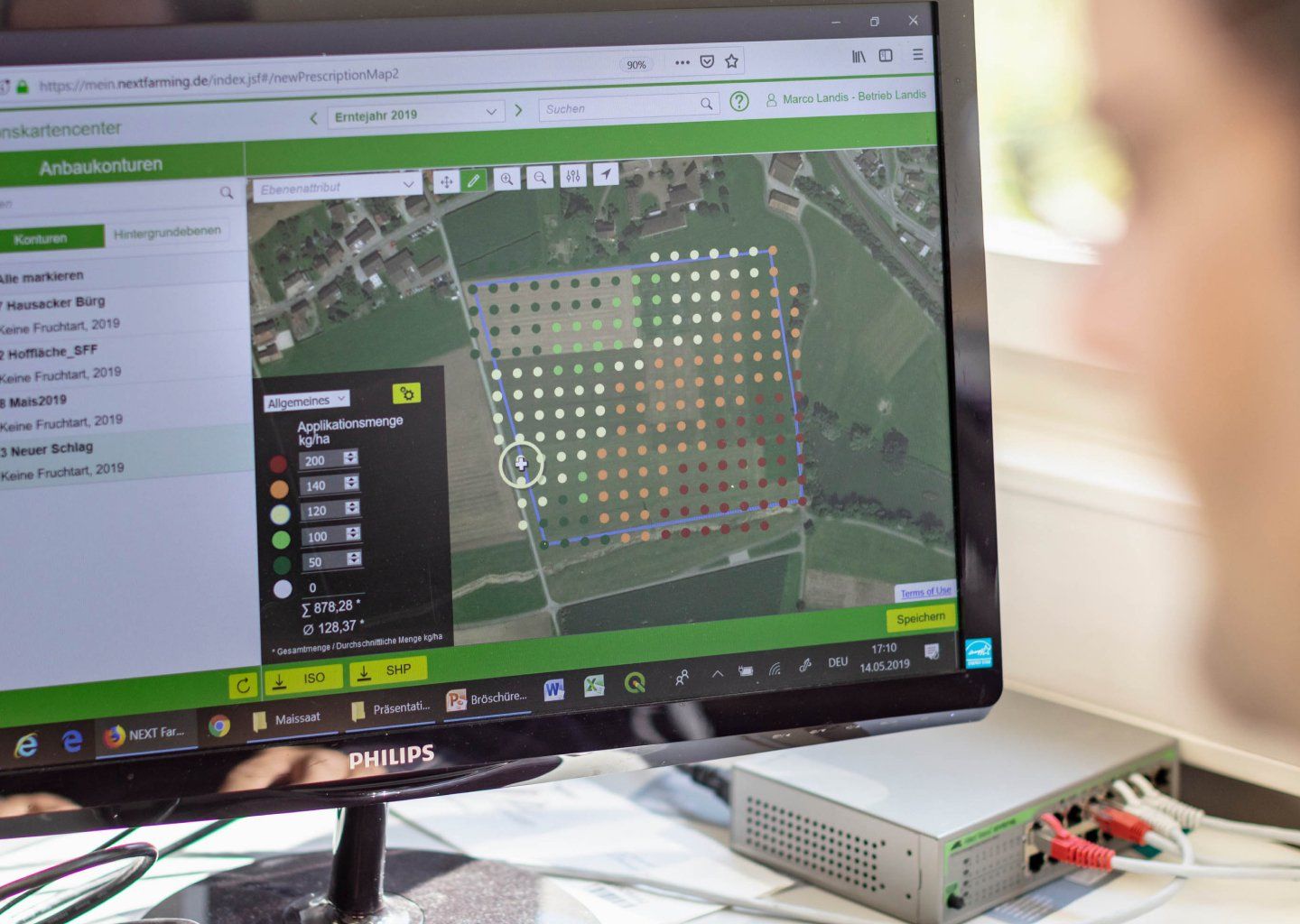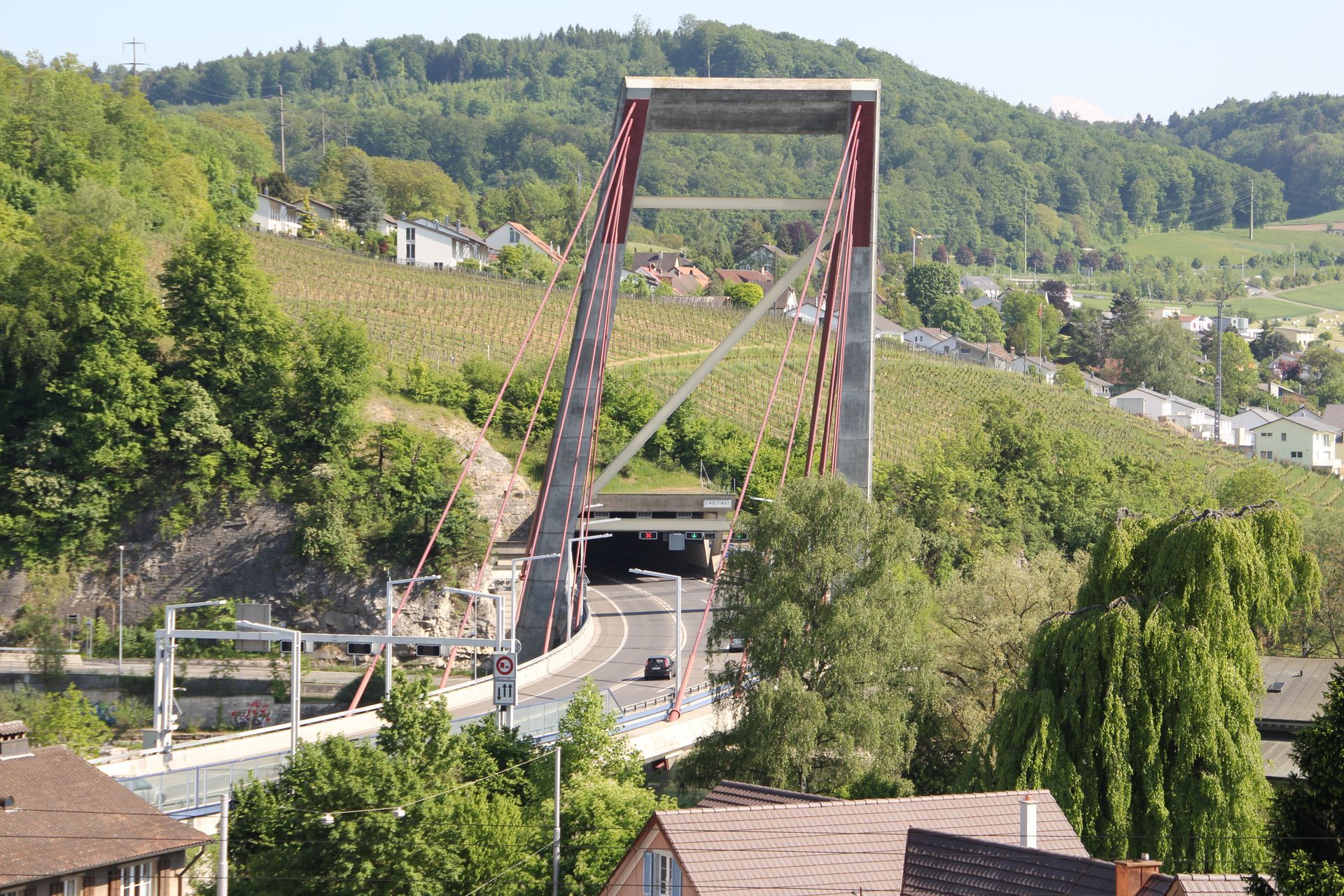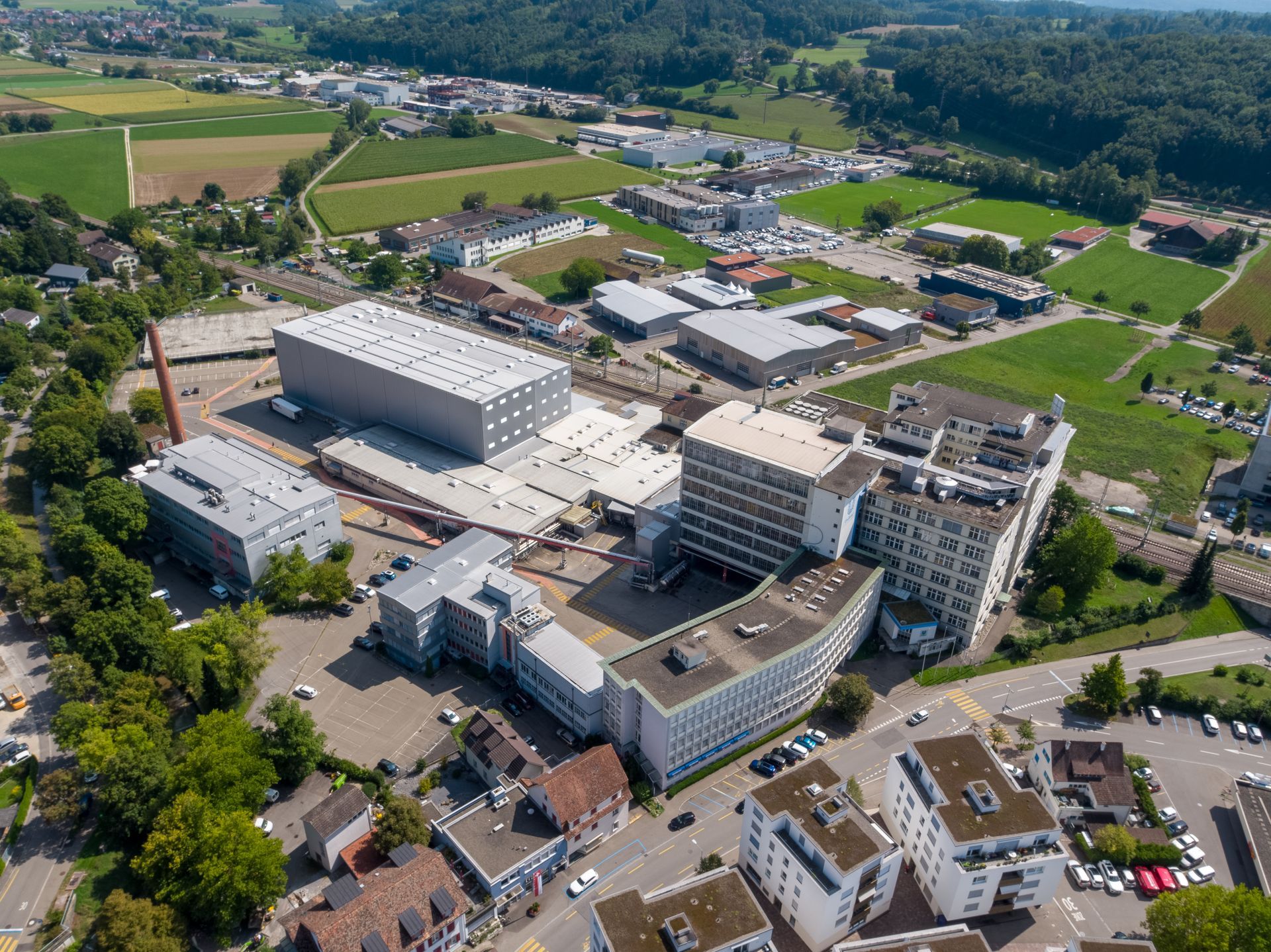The Swiss Future Farm showcases today what the farm of the future will look like. The project is a collaboration between two Schaffhausen-based businesses: AGCO International GmbH and GVS Agrar AG. Pooling the experience and expertise of the companies is enabling the development of innovative new products.
«Pooling knowledge triggers innovation.» – that’s the slogan of the Swiss Future Farm (SFF). This farm of the future is one of a kind in Europe and a test-bed which is exploring how the agriculture of tomorrow will work. It’s the product of close cooperation between two Schaffhausen-based companies: GVS Agrar AG, a specialist in agricultural technology, and US agricultural equipment manufacturer AGCO, whose European HQ has been located in Neuhausen am Rheinfall in the Canton of Schaffhausen since 2007. The two companies have been running the Swiss Future Farm since 2018, together with BBZ Arenenberg, an agricultural training centre in neighbouring Canton Thurgau, «Here we have the chance to harness the new opportunities created by digital transformation and to explore their use and benefit for agriculture.» That is how Markus Angst, M.D. of GVS Agrar AG, sets out the idea behind the Future Farm collaborative project.
The two businesses, GVS Agrar and AGCO, first formed a partnership in the 1960s. GVS Agrar became a general importer of the US company’s tractors, harvesters, planting and cropping equipment. «The Swiss Future Farm has taken our partnership to a new level», Bernhard Schmitz, Director Commercial Fuse & Service EME at AGCO explains, whose role includes responsibility for the manufacturer’s Smart Farming products.

The idea of a Future Farm isn’t something new for AGCO, as the company already has two such farms of the future in the USA and in Zambia. That experience triggered thinking about a joint project close to the company’s operations in the Canton of Schaffhausen and focussed on the needs of European farmers. The SFF explores and demonstrates where and how new technologies can already help modern farmers in their daily work. As an example, tractors in the fields of the Swiss Future Farm are steered by GPS, with the driver hands-free. The precision with which the tractors operate stands comparison with the workings of a Swiss timepiece. Seedlings are planted with tolerances of a millimetre, drones monitor growth and a local weather station takes air and soil samples. The data are processed and analysed in a central system and the results govern how the fields should be cultivated.
The SFF’s core team comprises one member of staff from each of the three partners, each specialising in a different area. They all share one office at the Swiss Future Farm, enabling them to update each other daily. The result of this inter-company collaboration benefits both companies, as the management of each readily acknowledges. The exchange of information and addition of new expertise to each business is said to be a huge gain. «The interaction between the client – in our case, the farmer –, the manufacturer and their agent surfaces what current needs exist and that triggers new ideas and innovation.», according to Schmitz. The project is a resounding success and the two companies have now developed plans to launch a «Lite Version» of the Future Farm model in France.







